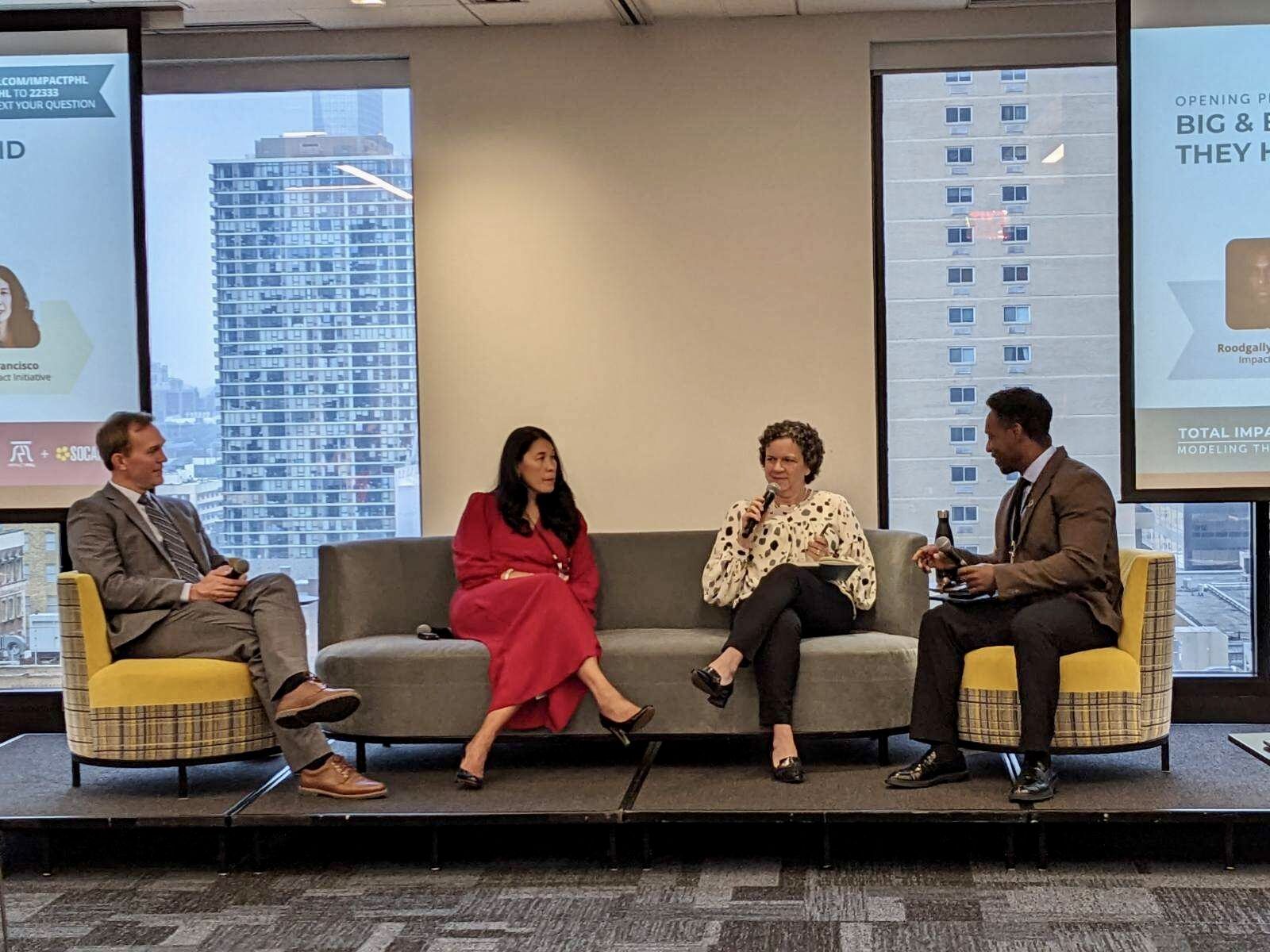Greetings, ImpactAlpha readers!
Featured: Impact Voices
The new ‘alternatives’: How community development financial institutions are scaling up impact investing. The deployment of large amounts of capital for financial and social returns requires intermediaries rooted in both communities and the capital markets. That makes community development financial institutions well-positioned to serve the growing number of mission-driven investors. Just as private equity firms and hedge funds attracted trillions over the last two decades for ‘alternative investments’ less correlated to stock-market results, these “CDFIs” have an historic opportunity to manage significant amounts of money from investors seeking access to the low-income and underserved communities where the community banks and credit unions have worked for decades.
“Over the last 40 years, we have seen private equity and hedge funds grow to manage trillions of dollars in assets and to gain acceptance as a core investment asset class,” writes Next Street’s Tim Ferguson in a guest post on ImpactAlpha. Now, CDFIs already are starting to tap mainstream capital markets to reach new levels of scale. Reinvestment Fund and the Local Initiatives Support Corp. have issued S&P rated bonds. Capital Impact Partners’ fixed-income security is available to retail investors. CNote, based in Oakland, Calif., has raised more than $18 million with a 2.5% interest note; deposits are pooled and invested in CDFIs. Community Reinvestment Fund is building the Connect2Capital lending platform. Opportunity Fund has a referral partnership with Lending Club. IFF, based in Chicago, is building market-making functions to structure transactions, akin to the capital markets desk in an investment bank. Says Ferguson, “Having investment opportunities that are in the tens of millions of dollars will be important if the industry is to become an intermediary of choice for impact investors and their advisors.”
Read, “The new ‘alternatives’: How community development financial institutions are scaling up impact investing,” by Next Street’s Tim Ferguson on ImpactAlpha.
Dealflow: Follow the Money
Brazilian fintech Creditoo raises $1.2 million for payroll lending. The São Paulo-based fintech firm partners with companies to underwrite and provide affordable credit to their employees. Other credit options in Brazil, like credit cards, can come with interest rates exceeding 300%. Creditoo underwrites loans that start at 1.75% based on borrowers’ monthly income and paycheck predictability, with repayment timelines of up to three years. Global Founders Capital and venture capital firm Canary backed the company’s latest funding round. Other Brazilian consumer-lending firms, including Creditas and Nubank, also have recently raised investor capital. Dive in.
Private-equity firms acquire veteran job-recruiting service Orion Talent. Orion Talent matches U.S. military veterans with civilian employment opportunities. The 28-year-old firm caters to a segment of the American workforce with only 2.9% unemployment, but that faces underemployment, low-wage employment, and difficulty adapting to workplace culture. Orion has helped 43,000 U.S. veterans build careers in manufacturing, logistics, construction and other sectors. Investment firms L2 Capital Partners and Lakewood Capital acquired the company for an undisclosed amount. Here’s more.
Google funds three dozen social enterprises in Kenya, Nigeria and South Africa. The tech giant has awarded $6 million in grants to three dozen tech-driven nonprofits and social enterprises in Kenya, Nigeria and South Africa. As part of its Impact Challenge, Google will also provide training and support to help the winners add customers. Kenya-based GiveDirectly allows donors to send money directly to families living in extreme poverty via mobile phones. Solar Sister invests in women-led clean energy enterprises in off-grid communities in Nigeria. Dig in.
Impact Voices: Pass the Mic
Will values-aligned investing survive the coming shakeout? The extraordinary growth of values-aligned investing over the past ten years has been aided by a strong tailwind from the longest bull market in US history. In a guest post on ImpactAlpha, Vodia Capital’s Avi Deutsch warns of dangers for ESG (for environmental, social and governance) and thematic impact investing strategies as a growing number of indicators point to the end of the business cycle – and a possible recession.
- Short vs. long-term. “In a perfect world, a market correction would prove the hypothesis that ESG factors are an effective risk mitigation tool,” Deutsche says. ESG strategies are designed for long-term risk management. The short-term performance of even best-in-class ESG products hasn’t been tested in a downturn.
- Private haven? Private market strategies may be safer from many of the threats facing the public markets. Still, Deutsche says, “In a down market, investors may not have the liquidity to make the required capital calls, or worse, they may have to sell public equities to raise the capital, as we saw in 2008.”
- Emerging markets. “The argument that impact investments, especially those in the developing world, provide an uncorrelated return, while perhaps true, has been slow to take hold even in stable markets,” says Deutsch (see, “Hedge in a volatile market: Companies meeting basic needs in emerging markets”).
- Ray of hope. “We can only hope that volatility and low returns in other asset classes will drive investors to seek out value-creating investment strategies in the impact space,” Deutsche concludes.
Read, “Will values-aligned investing survive the coming shakeout?,” by Avi Deutsch on ImpactAlpha.
Agents of Impact: Follow the Talent
Attention students and faculty at graduate schools: prospectuses for the Kellogg-Morgan Stanley Sustainable Investing Challenge are due Feb. 1 (see, “Next-gen leaders of finance step up to the sustainable investing challenge”)… Social Finance is looking for a vice president of accounting and finance in Boston… The Foundation Center is hiring a New York lead.
— December 5, 2018.











